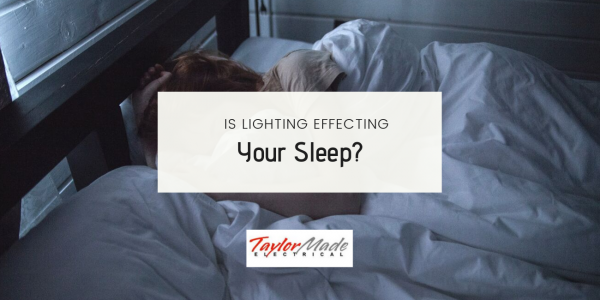HAVE YOU BEEN SUFFERING FROM INSOMNIA OR DELAYED SLEEP ONSET? THIS MAY BE A CONTRIBUTING FACTOR.
Your sleep/wake cycle is your internal biological clock to determine when it’s time to sleep and when it’s time to wake. Your body ebbs and flows just as the day and night. Sunshine increases cortisol production and as the day changes to night, your sleep hormone melatonin increases.
A 2012 study confirmed that with just 2 hours of evening blue light delayed the sleep hormone ‘melatonin’. Melatonin inhibits your waking and stress hormone ‘cortisol’. Blue light waves compared to other light waves have shown a significant increase in alertness and emotional stimuli (Iskra-Golec, 2012). Blue lights illuminate your televisions, phones, tablets, watches and most electronics.
Increasing light exposure during the day has shown to benefit sleep quality. However, during the night and prior to bed, lighting plays an integral role in sleep quality and mood (Hubalek, 2010). Blue-enriched white light and natural light during the day has shown improved alertness within workplaces and even improved sleep quality (Hubalek, 2010).
HAVE YOU BEEN SUFFERING FROM INSOMNIA OR DELAYED SLEEP ONSET? THIS MAY BE A CONTRIBUTING FACTOR.
Your circadian rhythm aka sleep/wake cycle also influences your primal physiological and biochemical processes. These include food intake, hormone release, immunity, mood, metabolism, cognition and your cardiovascular system (Fonken, 2014).
Imbalanced lighting has been shown to contribute to various health ailments, including; insomnia, depression, and weight gain (Fonken, 2014).

[Image of] Circadian rhythm with melatonin and cortisol regulation (The Circadian Rhythm: The Hero and The Villian, 2017)
In fact, metabolism and your sleep/wake cycle have been closely interlinked relating to obesity, metabolic syndromes and insulin sensitivities (Fonken, 2014).
LEARNING TO LIGHT YOUR HOME AND WORKPLACE IS HIGHLY BENEFICIAL FOR HEALTH
- Your home should be dimed with the sun going down. This helps align your body to the natural cycle. If this doesn’t suit your lifestyle, try creating your own sleep/wake cycle by utilizing light. This is a great way to benefit if you are a shift worker or have children.
- Increase your exposure to daylight and blue light during the day.
- Reduce screen time and blue light 2 hours prior to bed to help increase sleepiness and sleep quality. You’ll wake more refreshed and ready to tackle the day.
- Incorporate dimmers or lamps into rooms particularly your bedroom and main living areas.
Have you found a difference with changing your lighting/bulbs and your health? We’d love to hear from you!
Want to read more of our blogs? Find Them Here
References
Fonken, L. K. (2014). The Effects of Light at Night on Circadian Clocks and Metabolism. Endocrine Reviews, 35(4), 648–670. doi:10.1210/er.2013-1051
Hubalek, S. B. (2010). Office workers’ daily exposure to light and its influence on sleep quality and mood. Lighting Research & Technology, 42(1), 33–50. . doi:doi:10.1177/1477153509355632
Iskra-Golec, I. W. (2012). Effects of blue-enriched light on the daily course of mood, sleepiness and light perception: A field experiment. Lighting Research & Technology, 44(4), 506–513. doi:10.1177/1477153512447528
The Circadian Rhythm: The Hero and The Villian. (2017, Jan 19). Retrieved from Peter Bristotte: http://peterbristotte.weebly.com/blog/circadian-rhytm-the-hero-and-the-villain






